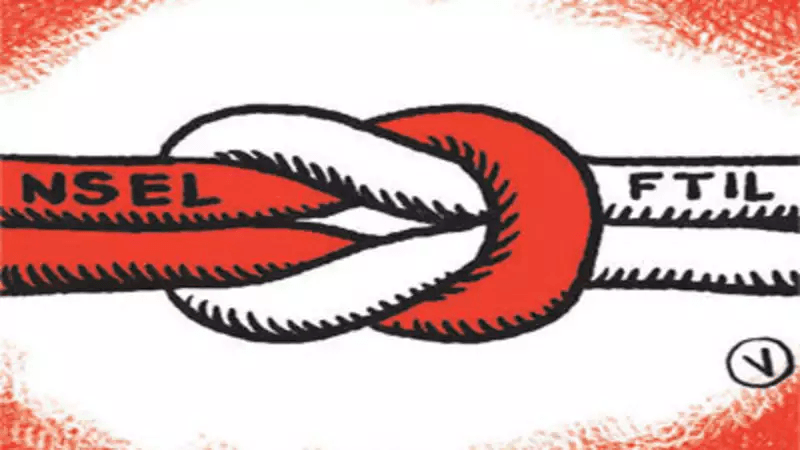1. INTRODUCTION
1.1 Overview
As we know that COVID-19 has hit all the countries across the globe. COVID-19 is the greatest global humanitarian challenge the world has faced since World War II. Along with an unprecedented human toll, COVID-19 has triggered a deep economic crisis. In India, up to 53% of businesses have specified a certain amount of impact of shutdowns caused due to COVID-19 on operations, as per a FICCI survey in March. More than 45% of households across the nation reported an income drop as compared to the previous year.
Due to COVID-19, all the businesses are suffering badly as no one was prepared for a situation like this. COVID-19 impacted all the businesses all over the world and people are suffering a lot. A small virus has bent the entire human race to its knees.
1.2 Problem Statement
The pandemic has created a big problem for the organizations as they are not getting enough business. As consequence some people are facing a huge pay cut, some are facing even job loss as well. It is really hard to say that how long and how much COVID-19 would impact or change the life of many people. As we know India is facing a recession and many people have lost their job or received a huge pay cut, so we could say that in these tough times compensation is a big issue.
This study tries to answer the below problem statements:
- How many people have been impacted due to COVID-19?
- How many people have lost their job?
- If someone has lost their job, how they are managing in the current scenario, and are they positive to find a new job soon?
- How many people have received a pay cut due to COVID-19?
- If someone has received the pay cut, how he/she is managing in the current scenario?
2. RESEARCH METHODOLOGY
Data Collection & Processing
The study was carried out based on the primary data collected from a set of respondents through an online survey form. In order to collect samples for the study a questionnaire was created (Annexure -1) and shared with the working people over email/social media and data was gathered from the response of the respondents. A total of 140 responses were gathered for the analysis. We also referenced some of the secondary data which were available through some other research papers which are already available on the related subjects.
Scope of Study
The scope of the study has been limited to finding the impact of the COVID-19 on the salaried class in India only. The study is conducted based on the response of a questionnaire and doing a percentage analysis of the response.
3. RESULTS & FINDINGS
We conducted the survey and the data received speaks following:
3.1. Respondent Profile
- Out of 140 respondents, 83.6% were male and 16.4% female. Out of all the respondents, majority, 32.9% were from the age group of 46-55 years followed by 25-35 years age group which is 30.7%, 29.3% are from the age group of 36 to 45 years.

- We targeted more senior-level employees which reflects in the sample which has more than half (52.9%) respondents with more than 16 years of experience. And nearly 80% of them getting a monthly salary of Rs.50000 or more. (20.7% are getting more than Rs. 2 Lakhs per month, 12.1% between 1.5-2 Lakhs, 27.1% between 50,000 to 1 Lakh). Only 20% of our respondents were getting less than 50 thousand per month (15% between 25 to 50 thousand and 5% less than 25000)

- Most of our respondents come from government sector & PSUs (31.4% & 4.3% respectively) followed by IT & ITES (22.1%) then Manufacturing, Automobile Production & Sales (9.3%) and education (7.1%).

3.2 Impact on Business & Salary
- Nearly 52% of respondents said that their organization incurred loss (50.7%) or had to shut down (0.7%). Interestingly, 8.6% also said that their company made a profit during the lockdown, since most of our respondents come from a government or PSU background many of them don’t know about their company’s business (18.6%).

- 5% of respondents have either received pay-cut (47.9%) or have lost their jobs (8.6%). Out of all the respondents, only 5.6% received their annual salary hike which was due in April/May 2020. Governments & PSU are not known for laying off so easily so nearly 38% did not see any impact on their salary but still 55% is a big number especially when we are looking at a sample with the majority govt/PSU employees.

3.3 Analysis of respondents with Pay-Cut
- Out of those who received pay-cut, 25.4% received more than 25% pay-cut, while the remaining (74.6%) received pay-cut of less than 25%.
- Despite pay-cut, 53.7% will continue in their same job, while 25.4% said they will change job only if they get some better opportunity. 19.4 said they haven’t yet decided on this.
- 50.7% of people said they have faced hardship but somehow they managed their expenses. 40.3% said they didn’t face any problem as they received enough money for all their needs. 9% said they had to take a loan from someone/bank.
- While answering about the job loss in the near future scenario 49.3% said they are not sure if they will face any job loss or not and 7.5% said that they are certain that they will lose their job. 43.3% said they would not face such a situation.

3.4 Analysis of respondents with Job Loss
- Out of those who lost their job, in the response to the question of how will they manage their finances after job loss 41.7% said they will break their savings, 25% said they are having a backup source of income, 25% said they will borrow from their friends/relatives if they need and 8.3% said they will take a loan from the bank or from private lenders.

- Out of those who have lost their job, 66.7% of respondent are not sure that they will get a job soon, 25% said they are confident that they are not going to get a new job soon and 8.3% said they are confident that they will get a new job soon.

Above charts and given details clearly demonstrates the findings of this survey. Although we floated our survey form mostly among the government/PSU employees who are considered to be immune from economic slowdowns as they get backings of the government but this is one of its kind pandemics in the century which has affected them as well. The results of this study can be summarized as below:
- Even in Govt/PSUs, more than 52% of their employees agree that their organization has incurred losses and only 8% have made a profit. It would be interesting to note that this 8% of organizations that made a profit even in these times were IT and Healthcare companies.
- Even in Govt/PSUs, more than 56% of their employees had to bear pay-cut during the period of lockdown and only 5% received their annual salary hike which was due.
- Nearly 51% of the Govt/PSU employees had to face financial hardships during the lockdown period, though more than 40% consider the salary after pay-cut was still manageable.
4. CONCLUSION
Based on our survey and careful analysis of the responses we can conclude the following:
- There is a clear negative impact of COVID-19 on the compensation of the salaried class in India, even on the salaried class who are working in the government sector or in any PSU.
- COVID-19 forced the majority of the organizations to offer pay-cuts to the employees, though mostly cut the compensation less than 25% but there are organizations that have even cut the salary by more than 50%, and even some organizations were forced to shut down their business altogether.
- In our study, we also found that despite the general trend of pay-cuts and job losses, there are few organizations that offered pay-hikes and made a profit also in the period of COVID-19.
- Some of the people who have lost their job had become hopeless of getting another job soon enough.
- Our survey indicates that the majority of employees have faced financial hardships due to a decrease in compensation during this period.







